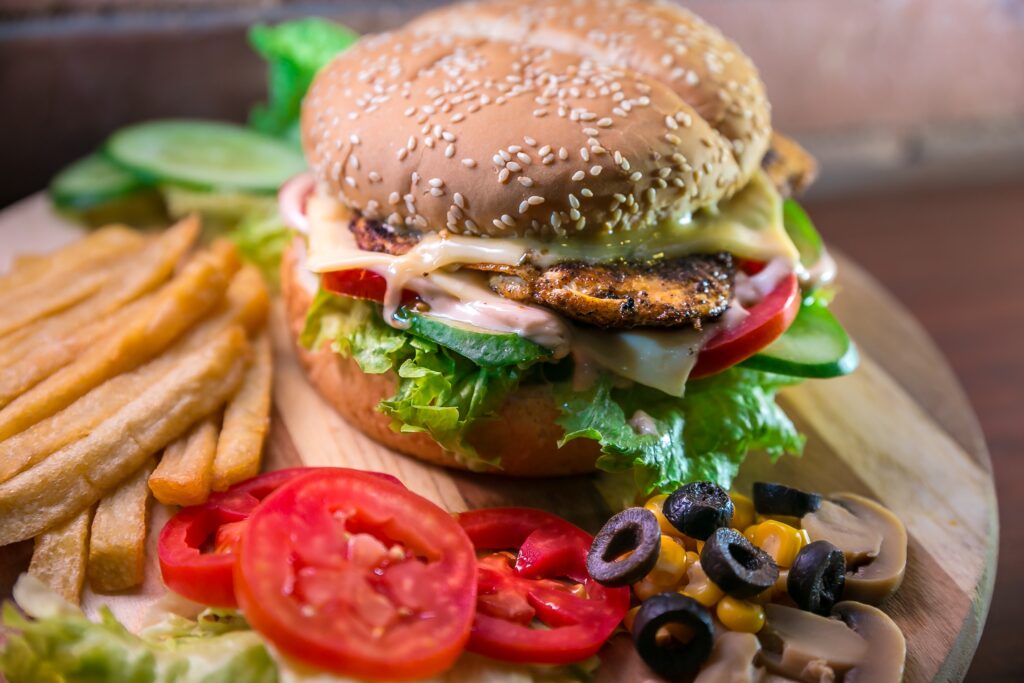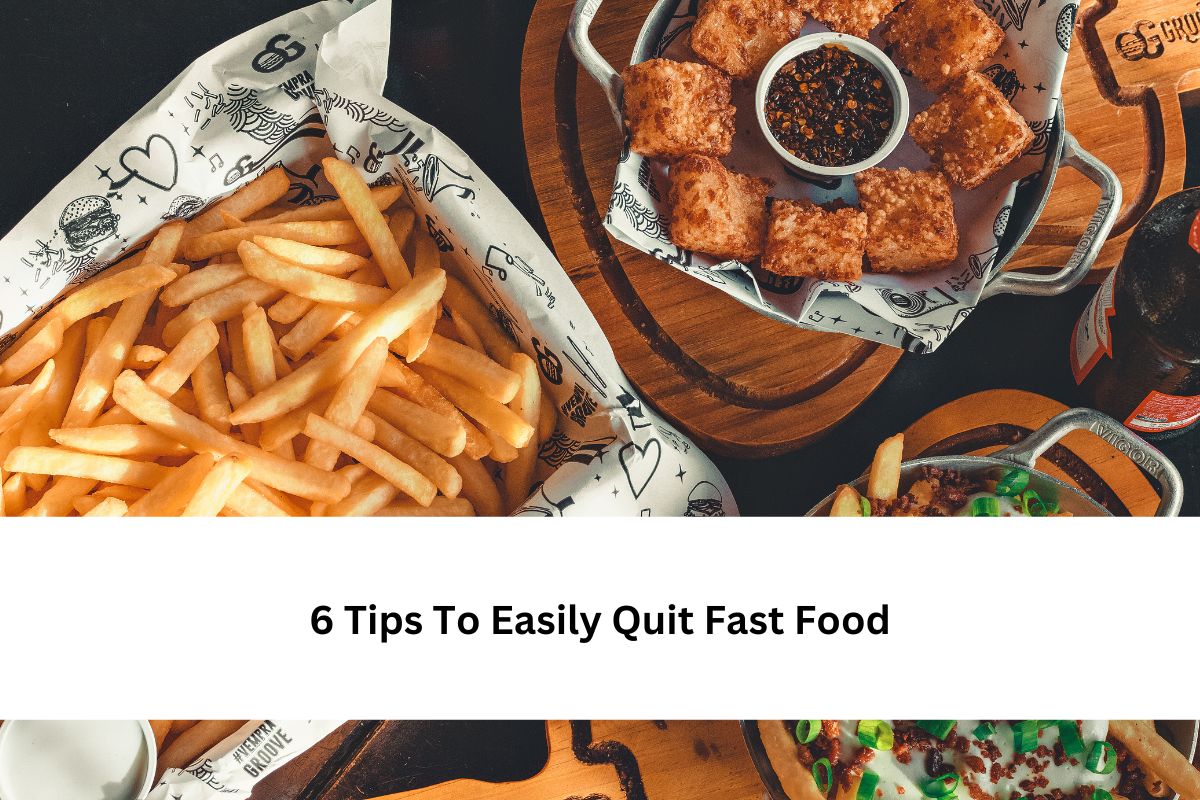After a hard day at the office, many of us have resorted to eating at a fast food restaurant or snacking on chips and soda while watching a whole season of our favorite program on Netflix. It’s hardly surprising, given that the addictive properties of these foods are purposefully designed to make you buy, consume, and want them on a regular basis. In reality, producers of edibles work hard to make items that taste great and make customers desire more. Unfortunately, junk food isn’t good for you.
But what exactly is fast food?
The calories in fast food don’t provide much in the way of actual nourishment. The amount of artificial sweeteners, trans fats, salt, and preservatives in these goods is alarming. Fries, ice cream, soft drinks, and other forms of junk food are unfortunately the norm at most fast food restaurants. What does this mean, then? What negative effects can eating junk food have on your body?
Added sugar, excessive salt, and trans fat are just some of the unhealthy ingredients commonly found in junk food. Calories, LDL cholesterol, and blood sugar levels all rise as a result, which is unhealthy for your heart. Overeating junk food can also lead to obesity and an increased chance of developing type 2 diabetes.
How can you break your addiction to fast food?
Even if you now understand the health risks associated with junk food, you may be asking what you can do to curb your cravings for the stuff. After all, it’s not easy to refuse a delicious burger, some crispy fries, and a tall glass of Coke. The next time you feel the want to go for another bag of chips or similar snack, consider these strategies instead.
Make a food plan
Planning your meals for the week ahead might help you resist unhealthy food temptations. For instance, if you prepare a nutritious dinner in advance, you won’t feel as tempted to stop for fast food or buy junk food from the convenience store later in the day.
To save money, you might carry a lunch from home instead of buying food at the office. You may save time and have enough food for the week if you cook in bulk. Delicious and nutritious dishes are easily accessible online. You may save money by preparing your own meals and bringing them with you.

Take in lots of water
You can reduce your cravings by drinking plenty of water. Drink a glass of water instead of reaching for the chips, chocolates, or sugary drink. It has the potential to eliminate your desire for junk food.
Keeping a big water bottle (between 500 ml and 1 l) close to your desk is a great method to remind yourself to drink more water during the day. In this approach, resisting temptation will be a breeze. When you feel the craving coming on, just down a large glass of water. Drinking at least eight glasses, or two liters, of water daily is suggested.
Distract from desires
In addition to quenching your thirst, distracting yourself with other activities might help you forget about your desires. Taking a stroll, for instance, might help you forget about the bad treats you had planned to consume. Rearranging your workstation or performing some little housework might do wonders for preventing you from overeating.
Eat well and properly
Avoid starving yourself since doing so will simply make you crave food even more. Rather, you can eat healthily by choosing high-protein foods like fish and beans. Foods like these might help you feel full and avoid binge eating. If you’re looking to satisfy a sweet tooth, try eating more fruits like berries, bananas, and watermelons. They are sweetened with sugars found in nature, are nutrient-dense, and contain no preservatives.
Take control of your anxiety
Accepting stress as normal might lead to unhealthy levels of stress eating. When you’re frustrated or anxious about your job, you may turn to comfort foods like chips and ice cream more frequently. When this occurs, it’s common to compensate by eating more of the wrong kinds of food or by eating past fullness.
Instead of turning to unhealthy foods when you’re feeling stressed, consider focusing that energy elsewhere. Multiple strategies exist to deal with pressure. Breathing exercises and meditation are two good examples of ways to relax and get in the zone. Instead of using food to cope with stress, consider keeping a journal, talking to a trusted friend or family member, or consulting a mental health professional.
Get a good night’s rest
Lack of sleep has been linked to increased appetite. If you don’t get enough sleep, you can give in to your hunger and eat more than you need to. Because of this, it is crucial to receive at least eight hours of sleep nightly.
Don’t bother checking your phone late at night. It may take you longer to nod off at night if you use electronic gadgets, which generate a lot of blue light. Caffeine should also be avoided several hours before bedtime. It’s also a good idea to skip the big meals at night. When you’re full, it might be difficult to get to sleep and remain asleep.
Learn to control your hunger pangs
Junk food is bad for you. This is why controlling your hunger is so important. Putting into practice the advice we’ve given here will help you control your desires. Taking better care of your body and adopting a healthy lifestyle will be easier with this information.
Taking your time and implementing these suggestions gradually will yield the best results. When you find yourself battling to control your appetites, be kind with yourself. Start off on the right foot by gradually reducing your intake of junk food and building on your existing healthy routine. You’ll quickly develop a habit of passing up unhealthy food.
Conclusion:
In conclusion, the Life Clinics article offers helpful information and suggestions for kicking the habit of eating poorly. Using these methods, people may take charge of their health and start making educated decisions about what they put into their bodies. People are more likely to make healthy food choices when they are aware of the negative effects that junk food may have on their bodies and minds.
FAQs:
Q1. Will these methods work for everyone in reducing their intake of processed foods?
Although the article’s suggested methods for cutting down on junk food can be helpful, their efficacy will ultimately depend on the person using them. Personalizing these methods to fit your lifestyle is essential, and if you need help, doctors or nutritionists are good resources to turn to.
Q2. Can I still eat healthfully if I occasionally indulge in sweets?
The key to good health is eating sensibly. Although the article suggests cutting less on junk food, remember that indulging sometimes is also part of a healthy routine. A sustained attitude to healthy eating may be fostered by practicing moderation and mindful enjoyment, which can help minimize feelings of deprivation.






